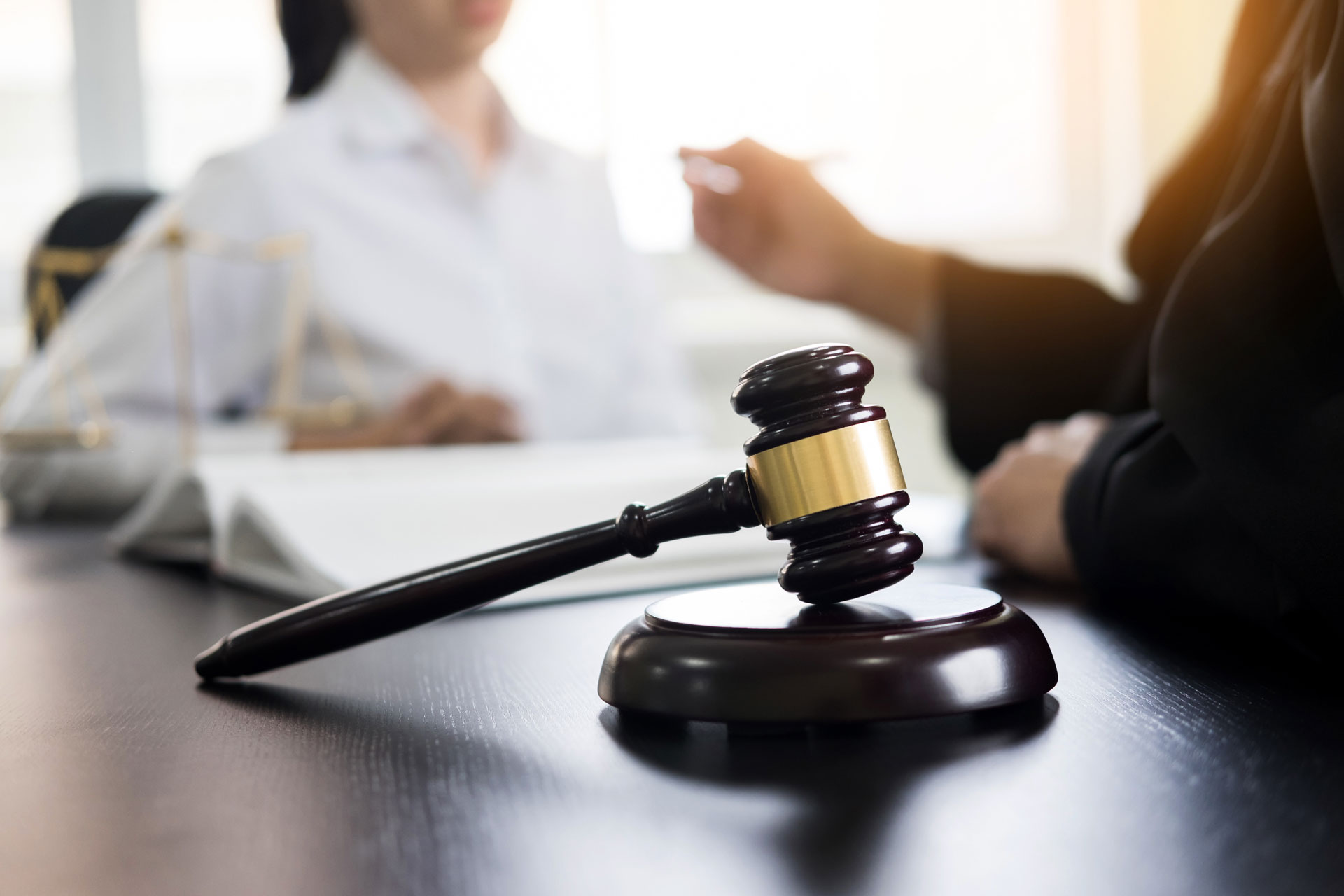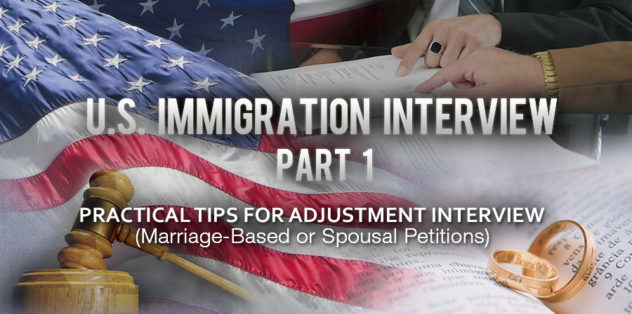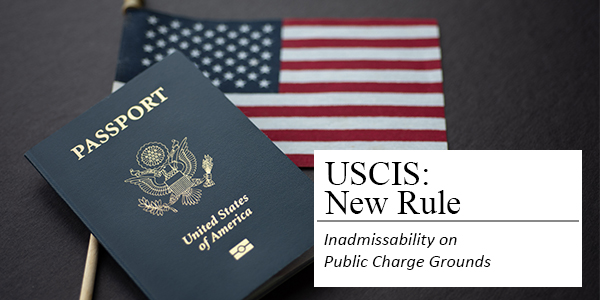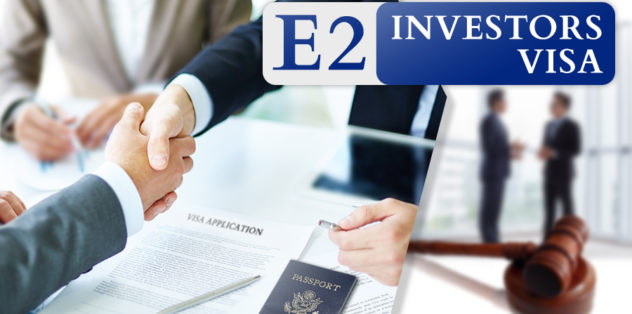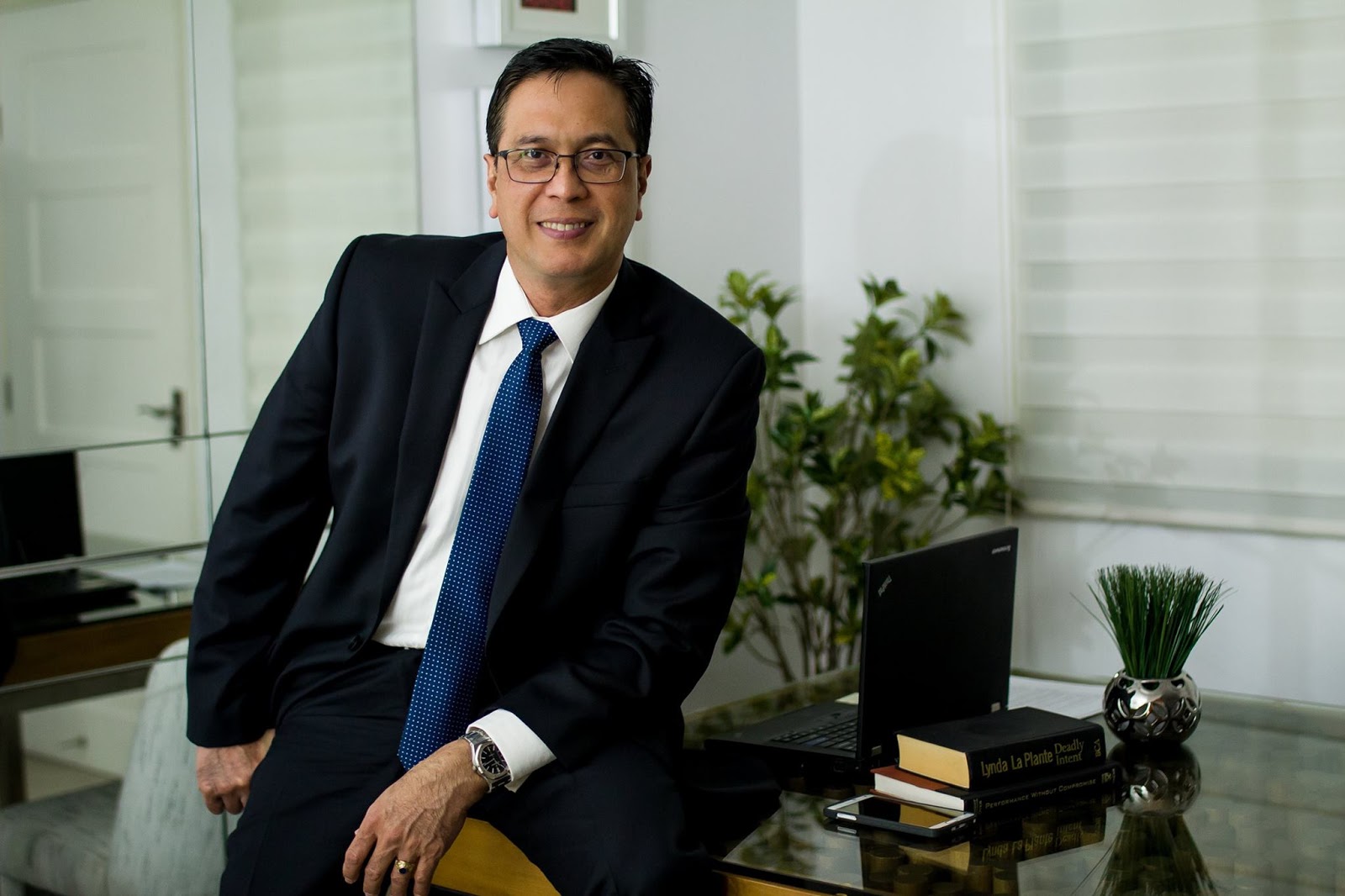US IMMIGRATION INTERVIEW PART 1: PRACTICAL TIPS FOR ADJUSTMENT INTERVIEW (MARRIAGE-BASED OR SPOUSAL PETITIONS)What is an Adjustment Interview?
All applicants and petitioners or any other individuals may be required by the United States Citizenship and Immigration Services (USCIS) to appear for an adjustment immigration interview (8 CFR 103.2(b) (9)). This is usually conducted when the applicants for Green Card would like to avail of such immigration benefits while residing in the U.S. at the time of filing. The purpose of the interview is to determine the accuracy and completeness of the information provided in the applications and/or petitions and to test the credibility of the subject(s) on certain material issues of facts which cannot be thrashed out and resolved on the basis only of the documents submitted to the USCIS (Adjudicator’s Field Manual, Chapter 15.1).
It would appear that the USCIS is interviewing ALL applicants and petitioners. However, in my many years of experience as a U.S. Immigration Attorney, I attended only a handful of Adjustment Interviews on Employment-Based Green Card Petitions. The reason being that these cases are usually adjudicated based on the documents submitted, and material facts can easily be verified from the records of the case. Of course, there are also interviews administered for Diversity Lottery winners and applicants for Citizenship, but they are not as tough as marriage-based adjustment interviews. Thus, my blog’s focus will be on Family-Based Petitions–more particularly spousal or marriage-based Green Card Petitions because the USCIS always conducts interviews on the petitioner and the applicant-beneficiary. Nobody is exempt. I will be discussing helpful tips for U.S. Visa Interview at the Consular level in another blog. I have attended a lot of these marriage-based adjustment interviews. I want to share with you helpful, practical tips on how to have a more pleasant experience during the interview and, of course, increase your chances of getting that seemingly elusive Green Card.
Since time immemorial, marriage-based Green Card Petitions has been and will continue to be the source of most fraudulent immigration procedures. Marriage fraud is the term used to refer to marriages that are considered sham or “fixed” to circumvent the U.S. Immigration Laws. These marriages are considered illegitimate or considered a felony, for it carries a penalty of 5 years imprisonment or $250,000 fine or both if convicted. Sham marriages are not based on love, and the couple does not intend to establish a life together(Bark vs. INS, 511 F2d. 1200 (9thCir. 1975)). Most USCIS Adjudicators will espouse that inherent bias that 70% of these types of petitions are fraudulent. Thus, it is incumbent upon all petitioners and applicants to turn the tide in their favor, and the last opportunity to achieve that goal is at the interview stage.
While USCIS Adjudicators are supposed to conduct interviews in a non-adversarial and business-like fashion (Adjudicator’s Field Manual, Chapter 15.1), I have personally seen and heard some of them go ballistic and sometimes display an intimidating behavior when it becomes evident that the interviewees are lying through their teeth. I cannot blame them because they are human beings with emotions too. Nobody wants to hear lies, do you? USCIS Adjudicators are very well-trained to propound very difficult questions to detect any inconsistencies,inaccuracies, fabrications of documents submitted, and lies from the testimonies of petitioners and applicants alike. They are very well aware that “love” is a state of mind that can only be manifested through actions. Thus, USCIS Adjudicator’s questions will focus on your past, present, and plan of actions regarding your marriage, how well you recall otherwise momentous events of your love story and your recent activities as a married couple. Expect them to ask questions about the very details of your courtship, very words uttered during the proposals and the corresponding response to the proposal, the engagement stage of your relationship, wedding preparation and ceremony, reception, who attended the reception, favorite food, honeymoon, your address, your home and the details of your home, bedroom, and even bathroom, what your spouse did yesterday and even last week, what time your spouse arrived home and as cliched as it may sound, “anything under the sun”. With all those details to remember, make sure you prepare very well for the adjustment immigration interview.
You will easily realize the value numbers 2 and 3 tips below, if you are not complacent. I have encountered countless couples who often tell me, “Our marriage is legitimate, there is nothing to prepare and we can handle all questions”! Oh yeah? These were the very people who experienced the most unpleasant interview. While they eventually got their Green Cards, I felt that these highly stressful episodes (not to mention the additional delay and expenses that came with it!) should have been avoided if they only prepared very well! Always remember that the opposite of success is not failure but “complacency” especially in adjustment immigration interviews. There is no substitute for preparation because that will instill confidence in you. Believe me.
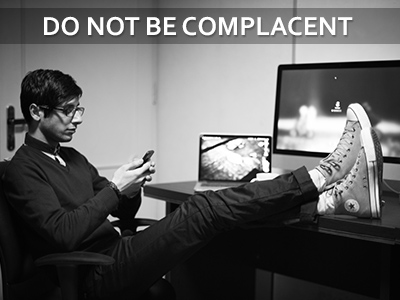
You can actually Google sample adjustment interview questions, or ask them from your attorney and make sure you and your spouse study and practice truthful answers very well. You will be surprised to learn that these sample questions are tough to address unless you study well enough and make no mistake, some or most of them you will surely encounter at the interview. Husband and wives are not always expected to give exactly the same answers but they are expected to have CONSISTENT ANSWERS. Otherwise, it will raise a red flag. Minor inconsistencies are allowed but major inconsistencies and diametrically opposed responses usually have dire consequences as they will heighten the suspicion of the USCIS Adjudicators. The moment that happens, you and your spouse will be placed in separate rooms or will be interviewed separately and might even elicit a less pleasant and more stressful interview.

USCIS Adjudicators will surely ask you certain information you have provided in the USCIS Forms. You are expected to know your own personal information and circumstances and that of your spouse. They just want to make sure they are interviewing the same person and not an impostor. You are not expected to forget your birthday, birthplace and the personal information of your spouse. You are expected to know the names of the children of spouse from another marriage, if any, the names of your parents-in-law and even that of your brother-in-law and sister-in-law.
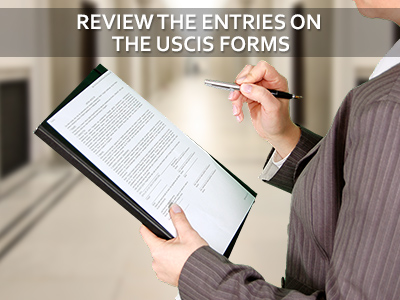
The USCIS Appointment will advise you not to come earlier than 45 minutes before the scheduled interview to avoid overcrowding in the USCIS Field Office waiting room. Nevertheless, I always advise my clients to arrive at least one (1) hour and fifteen (15) minutes early at the venue and just check in 45 minutes before the schedule time. Arriving way earlier will acclimatize you with the relatively hostile and stressful environment not to mention that you will often experience a long queue that takes about 15 minutes to about 30 minutes before you will be allowed to enter the USCIS Federal Building. You would not want to arrive late for the interview because chances are you will be rescheduled if your name is called and you do not show up—causing further delay and if ever you are allowed to proceed with your interview, you will not have time to settle down and will be in a panic mode throughout.

The USCIS allows you to submit photocopies of your supporting documents but you are expected to bring the ORIGINAL copies during the interview. Make sure they are well-organized ideally in a binder and properly tabbed for ready access. USCIS Adjudicator does not like to see you frantically searching for a piece of documents and waste time even more by waiting for you to finally hand it over to her! Worse, it might irritate the USCIS Adjudicator and delay your case if you forgot to bring it! This can also add more stress to you during the interview and I have seen many people just lose focus when it happens.
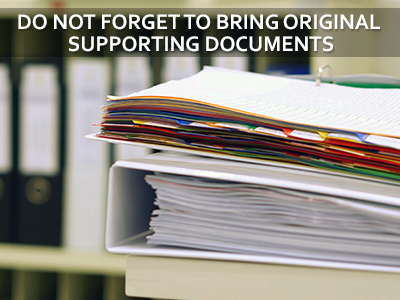
There is no better evidence of the legitimacy of your relationship and marriage than presenting more pictures of you and your spouse before, during and after your wedding. Make sure you put them in three (3) different albums (for past, present and after wedding pictures) with annotations as to the place and date when these pictures where taken. I personally prefer about 30 to 50 more pictures with a lot of people (friends and relatives) around you taken at different occasions and locations. Just make sure you are able to identify most, preferably all, of the people in the picture. Pictures are considered the best evidence because they speak a thousand words and more eloquent that what you say during the interview. People believe what they see and not what they hear.

You will SURELY not be allowed to gain access to the USCIS Federal Field Office building if you do not have a government issued I.D. and the USCIS Appointment Notice. Security personnel are very strict on this matter. You will need to the Appointment Notice (just put it on the paper tray) to check in at the designated window to inform the assigned USCIS Adjudicator that you are present and ready for interview.
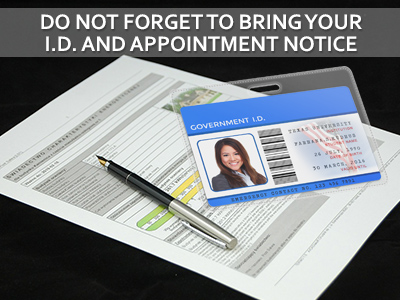
Guns, Swiss knives, cutters, lighters, blades and the like are not allowed. There is always a security check at the entrance and another one at the waiting room. Strict security measures are enforced and you do not need unnecessary embarrassment, delay and attention on your way to the interview.
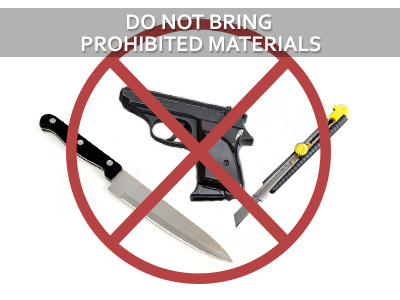
Wear a business attire so you will look dignified and respectful. For men, do shave and comb your hair—better still, trim your long hairs and look clean. I often see people wearing shorts, plain T-shirt, unshaved face, unkempt hair and sometimes sleeveless shirt. They are an eyesore and shows lack of respect to the proceedings. For women, you are not there to show how attractive you are in a mini skirt and/or in a plunging neckline as they could distract or possibly annoy the USCIS Adjudicator and other people inside the building. If you are an active military member, we strongly suggest to wear your military uniform but remember, no firearms are allowed because you are not in an actual combat zone. Well, you will be facing a different kind of “battle” though!

As married couple, you are expected to be somehow be sweet to each other but act appropriately. If you feel like holding the hands of your spouse during interview, that is fine but no more than that please. Engagement rings and wedding rings are expected to be worn during the interview because the USCIS Adjudicator will ask questions about the details of the purchase, sometimes the preference for design and who decided it and etc. Make sure to bring the receipts evidencing the purchase of those rings. If you do not have an engagement ring it is fine but wedding ring (no need to buy the expensive ones) is a must.
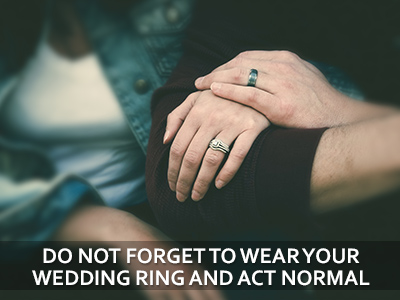
Do not go to the restroom simultaneously with your spouse because in case your name (usually the applicant’s name) is called, no one is going to advise the USCIS Adjudicator that you are in the restroom. Unless you have Lady Gaga, Madonna, Brad Pitt or George Clooney for a spouse, no one is going to recognize your spouse at the waiting room and possibly advise the USCIS Adjudicator that your spouse is still in the restroom. Go to the restroom at different times and listen carefully to the names that are being called out for interview. Do not use your cellphone while inside the waiting room unless it is extremely necessary.
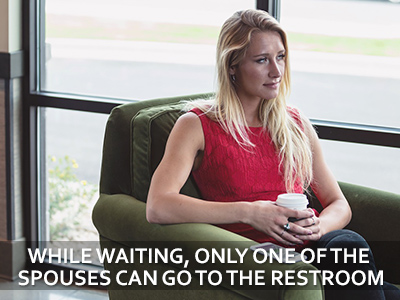
Have the mindset that you are applying for a job. You will not get the job if you act nervous, distrustful, utter lack of confidence, hands are shaking and voice cracking. Just stay calm and do not show any negative emotions when you do not like USCIS Adjudicators questions or they tend to be suspicious and insulting. Be modest and acknowledge the USCIS Adjudicator’s authority to decide your case fairly.

Your narrative of certain facts will sound very credible every time you simultaneously put forth the pictures and documents supportive of such facts. Make occasional reference to such other pictures and documents that can further support any other material facts. For example, if you say that you spend your Honeymoon in Europe, make sure to show those pictures in Europe airline tickets, boarding passes and hotel receipts to prove such trips. Boarding pass is more credible than mere e-tickets because it shows that you actually boarded the plane to the intended destination. E-tickets are mere confirmation of your flight schedule and nothing more. Another important document to present is proof of Life Insurance obtained and the primary contingent beneficiary is your spouse applicant. Almost always, USCIS Adjudicators like to see you mention health and life insurance policies and showing her the hard copy of the insurance policies or any evidence of insurance coverage.
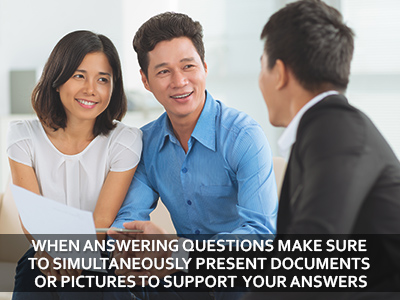
Maintain EYE TO EYE contact all the time and listen to the questions intently and stay focused. Request the USCIS Adjudicator to repeat the question if you do not understand fully because you might be giving answers that were not even asked and instead of trying to conclude the interview earlier, you are actually slowing it down not to mention wasting the time of the USCIS Adjudicator. Worse, you might also be giving totally wrong answers that might cause the denial of your case! Always consider the time of the USCIS Adjudicator and be apologetic when she needs to repeat her questions. Remember, her time is precious and she is very busy handling and about to interview hundreds of other cases.

When the question is answerable by a “yes” or “no”, do not try to explain because in the course of doing so, you might make your case complicated even more. Remember, less talk, less mistakes and inconsistencies.

When a lie is discovered, it is enough to create doubt in all your otherwise truthful answers. You will no longer gain the trust of the USCIS Adjudicator and any attempt to reverse that mindset is an exercise in futility. More importantly, when you are honest about the legitimacy of your marriage and the authenticity of the documents you have submitted, you will afford yourself a definite psychological advantage already. You have nothing to hide, right? With that mindset together with adequate preparation mentioned above, you will feel confident, comfortable and less nervous going through the interview. I have observed that USCIS Adjudicators tend to be friendlier and less intimidating when they could see that interviewees look more relaxed and composed during the interview. When you are not sure of your answer, do not guess and be humble enough to say, “I do not know” or “I do not recall”. If you have something irregular or seemingly suspicious about your case and you have already sought an attorney’s advice about it, it is way better to be honest and explain what really happened consistent with your attorney’s advice than try to conceal such fact.

I know a lot of you do not want to bring your attorney because either you are too confident you can handle the interview or you want to save on the appearance fee or both. Others think that by bringing an attorney, it will send a wrong signal to the USCIS Adjudicator that there is something fishy or fraudulent about the case. Those are not true. You are entitled to legal representation and if you had an attorney assist you at the filing stage, the USCIS adjudicator expects you to bring your attorney with you come interview time. Always remember that your attorney has the legal expertise and knows the facts and legal aspects of your case. No person is better equipped to handle any legal issues that might crop up during the interview. Your attorney can also serve as your “security blanket” because mindful of his presence, you feel even more confident and less nervous for you have an advocate on your side to protect you. Often, when interview gets to be more stressful and tense, clients usually panic and get so nervous and often unable to remember the questions asked and the answers given. Having an attorney during the interview will allow your advocate to calmly observe the proceedings and take note of everything that might be disadvantageous to the case so that he can very well defend your case should the need arises (i.e., Request For Evidence (RFE) or a denial).
On my part, I usually, among other things, write down all important USCIS Adjudicator questions and client responses and take note of any possible inconsistencies. I always try to show to the USCIS Adjudicator that I am being observant and taking my clients’ case seriously and will defend my clients to the hilt. Right at the conclusion of the interview, I always tell the USCIS Adjudicators to allow my clients to explain the inconsistencies of their answer, if any. Also, I personally help clients get organized with their documents and assist them before they certify to any recorded answers before I allow my clients to affix their signatures on such certification. Believe me, you might not realize the value of having an attorney by your side until you mess up your interview and would require an attorney to fix the problem. All my clients who successfully hurdled their interviews and eventually got their Green Cards swear that having an attorney present is worth the money spent for the purpose.
In conclusion, adjustment immigration interview is the last opportunity to present your case before the USCIS Adjudicator. Do everything you can to prepare yourself for a tough and grueling interview. Do not be complacent. If you happen to chance upon a USCIS Adjudicator who is so nice and gave you an easy time, well and good and consider it a huge blessing. But if you come across with a USCIS Adjudicator who has the habit of conducting very difficult and stressful interview, you can only pat yourself in the back because you have come to achieve your immigration goals and chances are, you will eventually receive your Green Card!
I know US Immigration Laws may be very hard to understand and maybe you got confused after reading this article; that you demand immediate answers. So I’m giving you a chance to directly talk to a US Immigration Lawyer, California. I encourage you to inquire from our free consultation page here -> US Immigration Services.
If you’re looking for US Immigration Services, Ponferrada Law Offices – attorneyhelpsyou.com offers excellent, quick and quality legal service with fast communication at the least possible cost.

On my part, I usually, among other things, write down all important USCIS Adjudicator questions and client responses and take note of any possible inconsistencies. I always try to show to the USCIS Adjudicator that I am being observant and taking my clients’ case seriously and will defend my clients to the hilt. Right at the conclusion of the interview, I always tell the USCIS Adjudicators to allow my clients to explain the inconsistencies of their answer, if any. Also, I personally help clients get organized with their documents and assist them before they certify to any recorded answers before I allow my clients to affix their signatures on such certification. Believe me, you might not realize the value of having an attorney by your side until you mess up your interview and would require an attorney to fix the problem. All my clients who successfully hurdled their interviews and eventually got their Green Cards swear that having an attorney present is worth the money spent for the purpose.
In conclusion, adjustment immigration interview is the last opportunity to present your case before the USCIS Adjudicator. Do everything you can to prepare yourself for a tough and grueling interview. Do not be complacent. If you happen to chance upon a USCIS Adjudicator who is so nice and gave you an easy time, well and good and consider it a huge blessing. But if you come across with a USCIS Adjudicator who has the habit of conducting very difficult and stressful interview, you can only pat yourself in the back because you have come to achieve your immigration goals and chances are, you will eventually receive your Green Card!
I know US Immigration Laws may be very hard to understand and maybe you got confused after reading this article; that you demand immediate answers. So I’m giving you a chance to directly talk to a US Immigration Lawyer, California. I encourage you to inquire from our free consultation page here -> US Immigration Services.
If you’re looking for US Immigration Services, Ponferrada Law Offices – attorneyhelpsyou.com offers excellent, quick and quality legal services with fast communication at the least possible cost.

